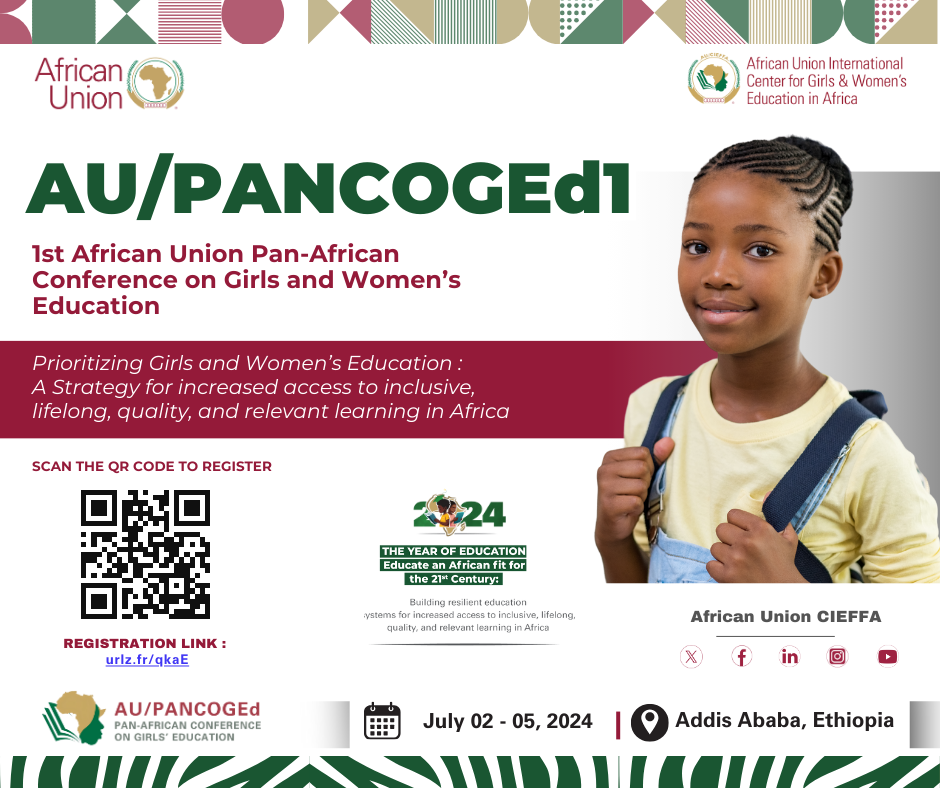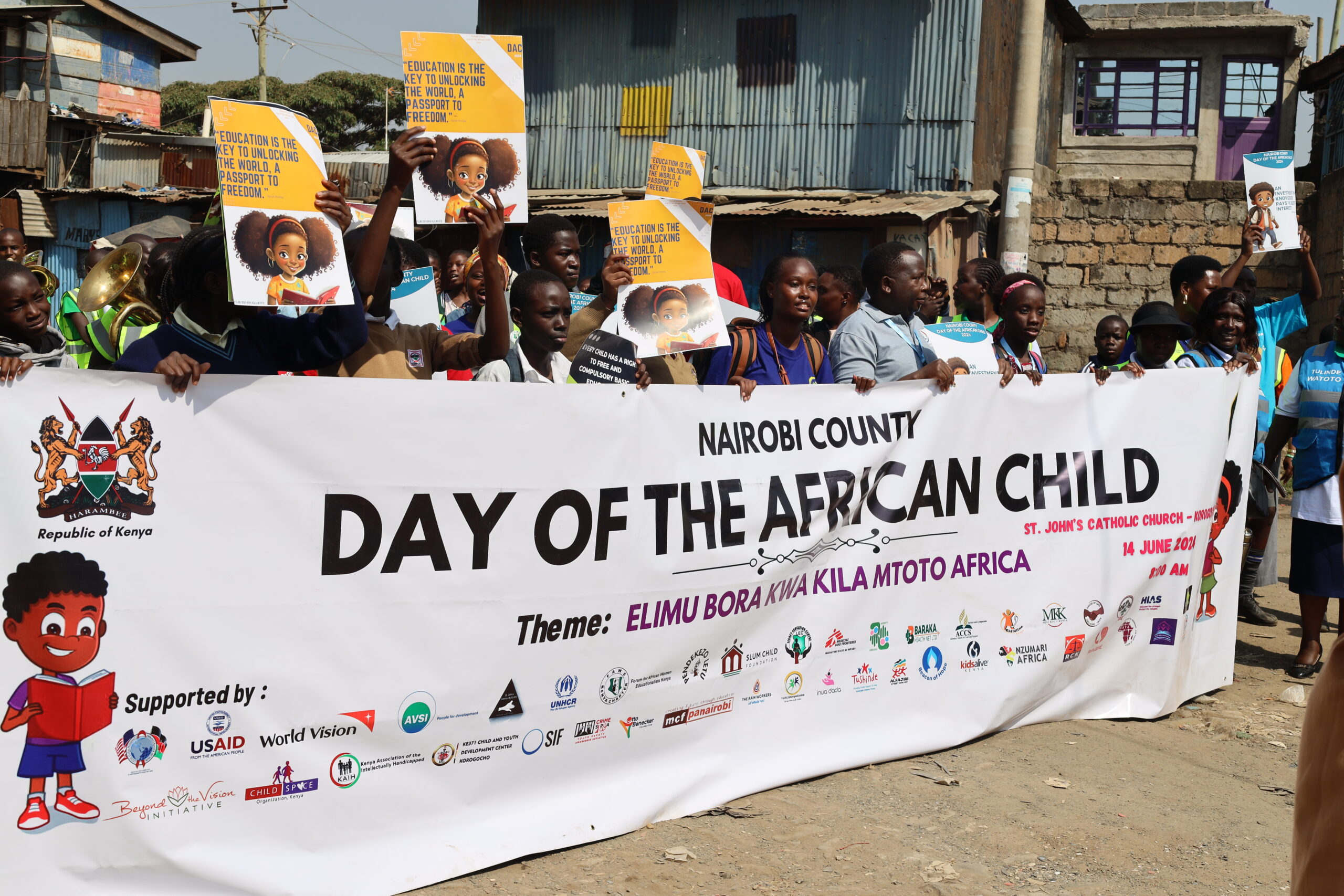To:
| H.E. Prof. Sarah Anyang Agbor
AU Commissioner for Human Resources, Science and Technology African Union Commission
|
H.E. Amira Mohammed Elfadil
AU Commissioner for Social Affairs African Union Commission Addis Ababa Ethiopia
|
April 20, 2020
Dear Excellencies,
The COVID-19 pandemic is an unprecedented global emergency, one which is likely to have a devastating effect on the African continent if the trends seen in other parts of the world take root in the region. The pandemic will exacerbate the inequalities already faced by vulnerable populations, particularly adolescent girls.
Measures to control the spread of the virus – including school closures, working from home, physical distancing and restrictions on movements – will have unintended consequences for girls’ education. Lessons from the Ebola crisis show that school closures can lead to increases in gender-based violence, teenage pregnancies, child marriage, exploitation and other forms of abuse against adolescent girls. School closures will be especially devastating for girls with greater vulnerabilities, such as refugees, internally displaced persons (IDP), returnees and girls with disabilities.
Countries experiencing extreme poverty, economic vulnerability and crises have the highest gender disparities in education. School closures in Mali, Niger, and South Sudan —three countries with some of the lowest enrolment and completion rates for girls —have forced over four million girls out of education. This could increase the risk of child marriage, teenage pregnancy, exploitation and gender-based violence.
Many of the complex factors that drive child marriage are also exacerbated in emergency settings, as family and community structures break down during crises. A pandemic of this nature presents unique challenges that require action to protect adolescent girls from violence and exploitation, both in the response and recovery phases. Critical interventions that prioritize gender-responsive education plans, along with economic incentives and other social protection measures, will ensure that adolescent girls are not left behind, and that they receive the education they deserve.
The impact of COVID-19 on adolescent girls is likely to surpass that caused by the Ebola epidemic. We collectively express our solidarity with the African Union and its Member States in the COVID-19 response. We reflect and applaud its remarkable leadership on the ‘Africa against Ebola’ programme that mobilised relevant resources and expertise to establish response mechanisms that contained the epidemic.
As multilateral and NGO partners working on girls’ education and ending child marriage, we have put in place several measures to respond to the COVID-19 crisis. These include rapid response financing for the education sector at country level, policy recommendations and technical assistance, as well as collating and sharing evidence and good practice. Details are found in Annex 1.
In solidarity with the AU, we have mobilised our collective expertise to share the following principles of good practice to mitigate the impacts of COVID-19 on girls’ education and their vulnerabilities. We hope these will be useful to the AU Commission in its efforts to ensure girls in its Member States remain educated, protected and safe during this pandemic. We will also use our networks to support the dissemination and application of these good practices.
- Include gender-sensitive approaches in the education response to COVID-19. Ensure that response measures are based on strong gender analysis and consider harmful gender-based social and cultural norms which influence girls’ and boys’ vulnerability to infection, exposure, and treatment. This includes ensuring that girls and women are central to the response and creating mechanisms that monitor girls’ re-entry to schools.
- Involve girls and women in the response. Consult girls and young women during the full cycle of the response, from needs assessments, design of education and other interventions, to monitoring the effectiveness of the response. This includes any unintended impacts on girls and young women due to school closures. Girls should be involved in decisions about their education.
- Work with teachers and communities. Where schools are closed, governments should support teachers, school staff and communities to ensure inclusive methods of distance learning are adopted. Community sensitisation on girls’ education should continue to protect education gains for girls and boys, and support teachers.
- Adopt appropriate distance learning solutions. Invest in appropriate low-tech, affordable and gender-responsive distance education methods, such as radio broadcasts, to support continued learning. Ensure online safety measures are in place to protect girls from harassment and predators.
- Ensure adolescent girls and boys continue to have access to comprehensive, age-appropriate sexuality education (CSE) and sexual and reproductive health and rights information and services as part of distance learning.
- Train educators to recognise and prevent violence. Develop guidelines to support and train educators to recognise and prevent violence against girls and the risk of child marriage and ensure continuity of safe referral practices and protection services, in particular at community level.
- Maintain essential services for the most vulnerable girls and boys. These include school meal collection services or cash transfers to replace school feedings, and girls’ access to menstrual hygiene products. This could help prevent girls from poorer households resorting to paid and risky work to supplement family incomes.
- Encourage girls to re-enrol. Government and school-level stakeholders should identify policies that encourage girls to re-enrol once the pandemic has passed. This includes removing policies that discriminate against girls, including bans on re-entry for pregnant girls and young mothers, and providing support through flexible and accelerated learning opportunities, as well as catch-up courses. Remove school fees and other indirect costs that could prevent girls returning to school.
- Protect social sector spending. Government Ministries (Education, Health and Finance) should work together to ensure domestic financing is not negatively impacted by the pandemic. They should factor gender-responsiveness into sector planning and budgeting to enhance governments’ ability to target funds for maximum impact, and account for the disproportionate effects of COVID-19 on girls.
- Develop a comprehensive post COVID-19 plan for re-opening schools. Ministries of Health and Education should work together to develop and communicate well-defined timelines to re-open schools, with clear benchmarks and standards. Drive reform to re-orientate and transform education systems, addressing the key bottlenecks and barriers to girls’ education. This includes concerted action to foster the next generation of skilled female talent and leadership – the doctors, nurses, scientists, technologists and teachers needed to fight the next pandemic.
Our respective organisations are committed to working with the AU to address the challenges of this pandemic. We look to you for your ongoing leadership.
Please accept your Excellencies, the expression of our highest consideration.
Signatories
Dr. Nyaradzayi Gumbonzvanda, African Union Goodwill Ambassador on Ending Child Marriage and Founder and CEO of Rozaria Memorial Trust
Dr. Faith Mwangi-Powell, CEO of Girls Not Brides, The Global Partnership to end Child Marriage
Alice Albright, CEO of the Global Partnership for Education
Anne-Brigitte Albrectsen, CEO of Plan International
Martha Muhwezi, Executive Director of Forum for African Women Educationalists (FAWE)
Cc:
H.E. Moussa Faki, Chairperson, Africa Union Commission
H.E. Kwesi Quartey, Deputy Chairperson, Africa Union Commission
Dr. Mahama Ouedraogo, Director AU-HRST
Ms. Cisse Mariama Mohamed, Director, Social Affairs





Leave A Comment